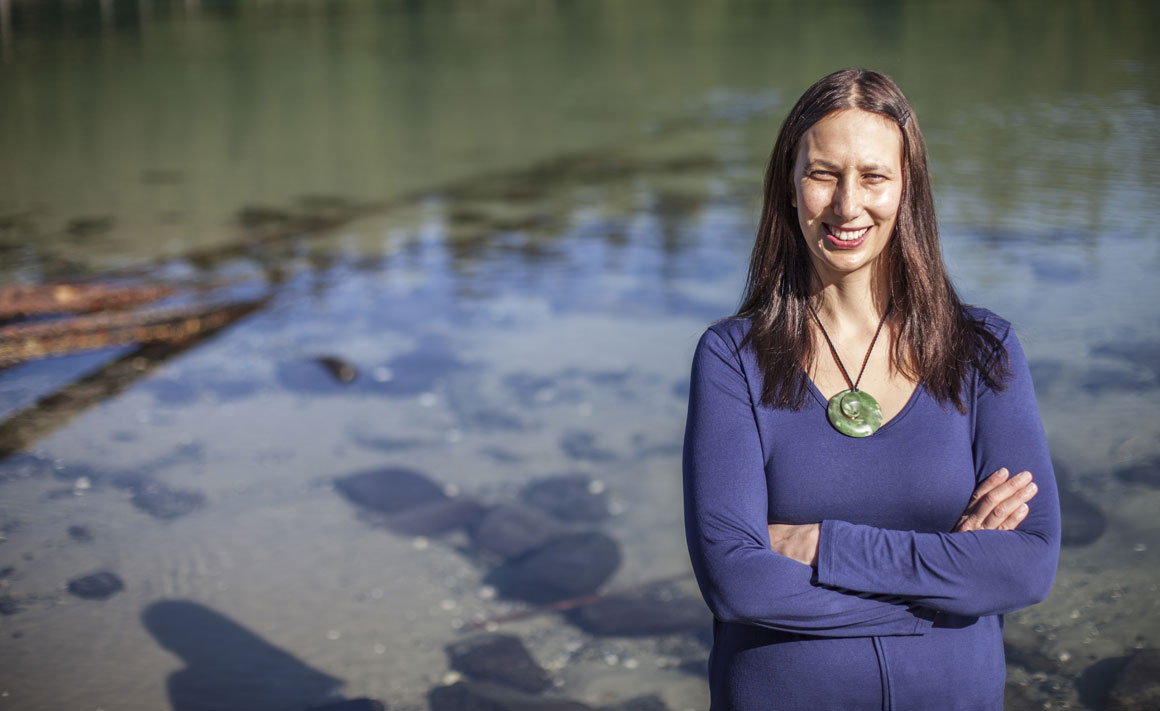
Otago research on indigenous peoples' legal rights is attracting global attention.
Associate Professor Jacinta Ruru (Faculty of Law) specialises in indigenous people's rights to own, govern and manage land and water, focusing on New Zealand, Australia, Canada, the United States and Scandinavian countries.
Ruru says that the overarching theme of her comparative work is on systems of justice that reconcile indigenous peoples' legal rights.
“When you had new European peoples coming into lands that were already lived on, with operative indigenous legal systems, these arrivals created important universal questions that colonial countries are still grappling with.”
“I am interested in the similarities between these countries, in treaties that were signed, and in the decisions the courts made in often refusing to recognise indigenous peoples' sovereignty and ownership of property,” Ruru says. “And I am interested in how far we have moved away from those precedents and how we are committing to reconciliation.”
Ruru has led or co-led several national and international research projects, including one on the common law doctrine of discovery, which resulted in a major publication, Discovering Indigenous Lands, she co-authored with three leading indigenous academics from Australia, Canada and the United States.
This book presents a substantial new insight into understanding how British colonisation, in reliance on the doctrine of discovery, was similar throughout its colonies and specifically prevalent in New Zealand where, she says, Britain sought annexation via a treaty of cession steeped in an ideology of discovery.
“International law was used to claim sovereignty over land by either conquest, a treaty of cession, or discovery,” Ruru explains. “Even if there were already people there, Britain utilised discovery on the basis that the indigenous peoples were 'savages' and 'not civilised enough' for Europeans to be able to recognise their sovereignty, property and laws.
“We traced this in terms of these four countries using very similar legislation and court decisions to describe indigenous peoples in this way, which is a fiction. We argued that, in a lot of legislation and court decisions, even today, remnants of that discovery idea still exist.”
Ruru points to the political aftermath of the Ngāti Apa foreshore and seabed claim in New Zealand to support the argument. “Parliament would not contemplate indigenous ownership of the foreshore or seabed. In doing so, it blatantly resurrected the doctrine of discovery.”
Ruru has a particular interest in indigenous legal rights related to national parks; she completed her doctorate at Victoria University (on Vancouver Island) on the rights of indigenous peoples to own and manage lands that have been encased within national parks in Canada and New Zealand.
“Up until very recently, both countries have been very resistant to recognising indigenous people's continuing relationships with, and interests in, national parks,” Ruru states. “If there is a new commitment to recognising indigenous peoples in law, what ought this to mean in the context of owning and managing national parks?”
Another research interest – in the comparative colonial experiences of Māori in New Zealand and Sami people in Scandinavia – has seen Ruru spend time in Sweden and Norway. She was one of two international guests invited to attend a research workshop of Nordic legal scholars, and is contributing to the first book in English on how the law in Scandinavian countries is engaging with Sami people.
The leading New Zealand scholar in indigenous peoples' legal rights and interests, Ruru has authored, co-authored or edited more than 80 books, book chapters, and journal articles, many on indigenous legal rights.
Her knowledge and expertise have made her a popular speaker at international conferences. She has presented more than 50 papers, often as the keynote speaker, at major conferences hosted in New Zealand, Australia, Canada, Norway and Taiwan; she is travelling overseas again in late 2015 and early 2016 to deliver keynote addresses at conferences in Australia and Sweden.
She has also organised several conferences, including the first International indigenous Legal Water Forum in Wellington, which led to her editing a special issue of the Journal of Water Law.
“Globally there is interest in what is happening in New Zealand because of this country's commitment to reconciliation through the Treaty of Waitangi settlements.”
“New Zealand is one of the leaders in terms of international indigenous-Crown relationships, but we are still early on in this journey and have a lot to learn and be inspired about with initiatives overseas.”
Funding
- Fulbright New Zealand
- New Zealand Law Foundation
- Ngā Pae o te Māramatanga: New Zealand's Māori Centre of Research Excellence